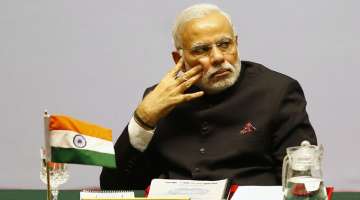The run up to the elections for Maharashtra’s civic bodies saw the political spectrum abuzz with statements projecting the polls as a referendum on the Centre’s move to demonetize high-value currency notes.
The Shiv Sena, led by Uddhav Thackeray, which broke its 25-year-old alliance with the Bharatiya Janata Party, emerged as among the biggest proponent of the local polls being a referendum on the central government's demonetization decision.
However, the February 23 verdict of the polls for the 10 civic bodies, appears to have proven otherwise.
The results to the cash-rich Brihanmumbai Municipal Corporation (BMC) polls saw the BJP make significant gains, capturing 82 seats – just two behind the Shiv Sena which had promised a clean sweep. The Congress, on the other hand, was decimated to 31 seats. The NCP and the MNS, too, failed to impress – settling at seven and 9 respectively.
The BMC has for long been a political lifeline for the Sena in Maharashtra and for good reason. The budget allocated by the SS-BJP combine in the 2016-17 budget for Mumbai was of Rs 37,052 crore, a 10 per cent increase from last year’s allocation.
It is the huge allocations and revenue streams that make BMC seats one of the most lucrative and sought after in Maharashtra. Covering an area of 480.24 sq km with a population of 1.19 crore as per the 2001 Census, the BMC generates a Rs 6,300 crore revenue, making it among the richest in Asia.
The budget and the revenue this particular civic body commands and generates is several notches above than India’s other cities and even some small states.
The budget allocation for the municipal corporations of Delhi was Rs 6,919 crore last year. It was Rs 5,123.51 crore for the Greater Chennai Corporation and Rs 3,793 crore for Kolkata Municipal Corporation for the same year.
Pitting the elections as a referendum on the Narendra Modi-led government’s demonetization move has clearly backfired for the opposition. Going by their own assertions prior to the verdict, the BMC results would go on to showcase the people’s ire against the BJP-led central government and what would eventually follow on into the results of the Assembly elections.
Again, going by their own assertions, here’s the math why dementisation has not had the kind of impact that the opposition would probably like to have seen.
As per 2015 figures, Mumbai, the financial hub of India, accounts for slightly over 6.16 per cent of India's economy contributing 10 per cent of factory employment, 30 per cent of income tax collections, 60 per cent of customs duty collections, 20 per cent of central excise tax collections, 40 per cent of foreign trade and Rs 40,000 crore in corporate taxes to the Indian economy
The city’s gross domestic product (GDP), or the total value of goods and services produced in a year, is higher than that of any other state except Maharashtra of which it is part, and accounts for nearly 85 per cent of the state’s GDP.
The results indicate that the demonetization exercise has failed to impact the city of Mumbai and its suburbs to the extent that would have resulted in a whitewash for the Shiv Sena which chose to corner the government in editorial after editorial over the notes ban.
The constant attempts by Congress and co to substantiate demonetization as the government’s biggest failure reeks of desperation that has probably led to their drastic loss of ground, as is evident from the results.
Even senior Congress functionaries admit, off the record, that the party has failed to provide a new narrative to the people following its Lok Sabha debacle.
As it turns out, sidelining local issues in civic elections and blindly toeing the party’s line at the Centre has not been the wisest ploy.
